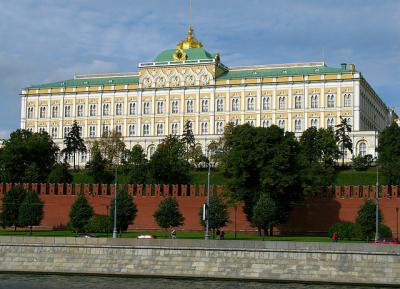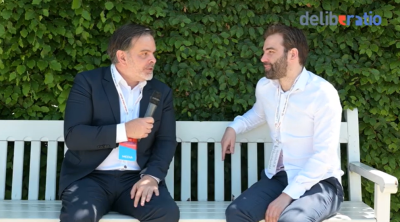The month of April has been marked by two major events in France. First, the continuing protest against the pension reform, which, for many experts, constitutes a regime crisis that could lead to a Sixth Republic. In my opinion, it is above all a question of the left-wing elites using the streets to maintain their privileges in the context of deficit reduction. The second event, linked to the first, was the downgrading of the French public debt by the rating agency Fitch, which further aggravated the list of indicators of France's continuing downgrading.
Let us start from the end. On 28 April, the rating agency Fitch Ratings downgraded France's public debt rating by one notch, from AA to AA-. In 2012, France still had an AAA rating, which was then downgraded to AA+ in 2013. This downgrading of France is general, whether in terms of education or GDP. Who remembers that in the 1960s France was the second or third economic power in the world, behind the United States and sometimes Japan? Today, it is ranked seventh... Coming back to the rating of sovereign debt, it reflects both the level of indebtedness and the borrower's ability to repay the debt. It is true that France's debt has increased during the Covid period, rising from an average of 97% before 2020 to over 111% between 2020 and 2022. But what is interesting is that Fitch has downgraded the rating this year whereas last year, despite higher debt and deficits, it remained unchanged. This means that Fitch considers that the repayment capacity has deteriorated slightly, even though the pension reform has come into force. However, one of the stated objectives of raising the retirement age from 62 to 64 was to reassure creditors that France would be able to work longer to repay the debt. The rating agency has justified itself by saying: “The political stalemate and (sometimes violent) social movements pose a risk to Emmanuel Macron's reform agenda and could create pressure for more expansionary fiscal policy or a reversal of previous reforms, (...) with radical and anti-establishment forces again increasing the risk of loss of control over public spending."
Fitch therefore fears that the French government will go back on its reform and that it will go back to incurring deficits and debts while trying to calm social discontent, as always in France, by showering aid and subsidies on the categories that complain the most. Yet the government has planned to accelerate debt reduction with a new objective, reasonable for a liner like France, of a 108.3% GDP debt in 2027. In a country as administered as France, where the state takes 47% of the annual GDP, making it the world champion in this respect, it is very important for the elites to position themselves for posts, functions, commissions and funding at the beginning of their mandate, all the more so when the resources are going to be reduced. When it is the president's first term in office, one does not spit on the future, and flatters him. But when you know that he will not be able to run again, it is important to show how much better it is to have you with him than against him. In France, both in politics and in the administration, a person is not judged on his or her competence, but on his or her power to cause trouble.
Apart from the violence, what impresses most when you look at the demonstrations is the concentration of trade union flags, especially the red ones of the CGT, and the massive support of the public media. To caricature, as much as the Yellow Vests lacked the presence of elites, unions and the civil service to succeed, this protest lacks the employees and small entrepreneurs of the private sector. The bulk of the protests are generated by the state-funded sectors: trade unionists, NGOs, political parties and the civil service. Certainly, the vast majority of French people support this movement, just like at the beginning of the Yellow Vests. Even worse for Emmanuel Macron, after six years in power, now three quarters of the French no longer trust him or listen to him. Despite all this, as I wrote in March, I think that Mr Macron will win this battle. First of all, because of weariness, because of the violence, and above all, because now the left-wing elites have shown their muscles and have no interest in social protest continuing. The demonstrations have demonstrated the power of nuisance of the public media, the trade unions and the left-wing opinion leaders, but also, despite their enormous striking power, that the number of protesters is stagnating and slowly eroding. If the unions' aim was really to win, they would call for a wage increase in the private sector to cope with inflation. Because in the private sector, everyone would prefer an increase right away, rather than the promise of a hypothetical retirement, whether at 62 or 64. But they don't, because winning in the streets would mean new elections. Marine Le Pen, whom the left and the unions hate more than anybody else, is at the top of the polls. New parliamentary elections would force Emmanuel Macron to ally with the right-wing party "Les Républicains" to win against her. The left would lose in any case. Also, in my opinion, the left-wing elites are using the street to secure their positions, functions and funding in the context of debt, and therefore, funding reduction. Moreover, Emmanuel Macron is using the future "immigration law" as a blackmail tool. Immigration has become essential to the left's ecosystem, both in terms of direct and indirect income, and as an existential necessity for NGOs, trade unions, left-wing political parties and public media. As a sign of appeasement, Mr Macron proposed to bury the future "Immigration Law" at the end of March. However, at the end of April, at the time of the Fitch announcement, he threatened to put it back on the table.
Yet, for a growing number of French experts, these protests are above all a crisis of the regime. The first to propose this analysis is the historian Philippe Fabry. As he points out in 'Le Figaro', the French regime, through its hyper-presidentiality, constitutes 'an exception with regard to the institutional standards in force in democratic Europe: the head of state is not, in practice, distinct from the head of government, since the president of the Republic chairs the Council of Ministers. Unlike in the neighbouring countries, the real head of the executive in France is not accountable to Parliament, is irremovable during his term of office and holds the National Assembly under the threat of dissolution. (...) Thus, the Fifth Republic is an anomaly, surrounded by parliamentary democracies in the European area. So, is France going through a political or institutional crisis? The answer will be given in the weeks and months to come.
Read also
Six great misunderstandings about Russia
To read the thoughts of many French opinion leaders and their supporters on social networks about Russia is to despair of humanity. They base almost all their analyses on misunderstandings that can only lead to erroneous conclusions.
Patrick Edery
Holiday debates on immigration with French 'papys boomers'.
Every year, like many of us, I spend the summer holidays with my family. It's a time for endless political discussions. As someone who enjoys adversarial debate, I must admit that I'm often provocative. I particularly enjoy sparking discussions on immigration with my elders, as our opinions differ so widely on this issue.












Comments (0)